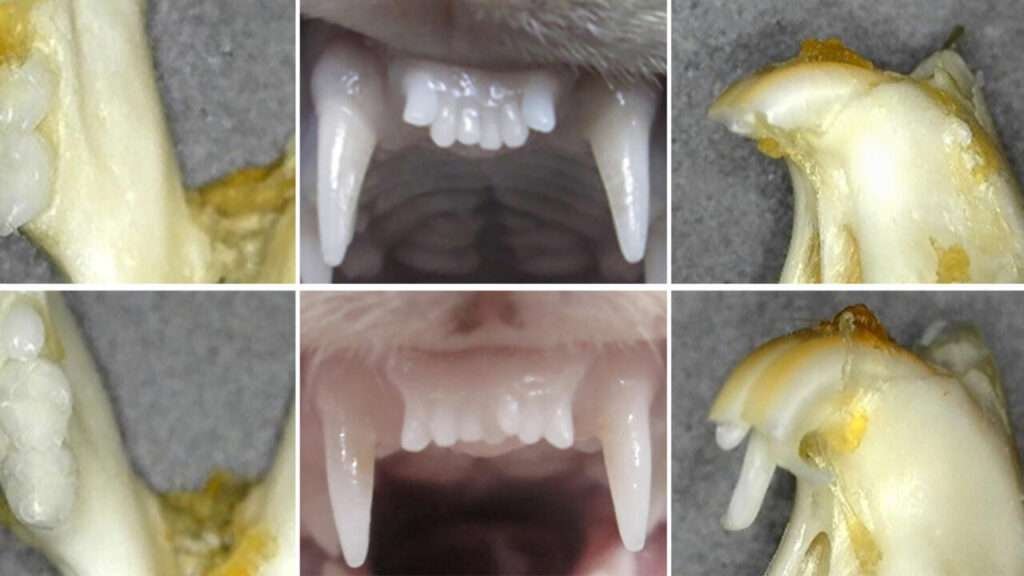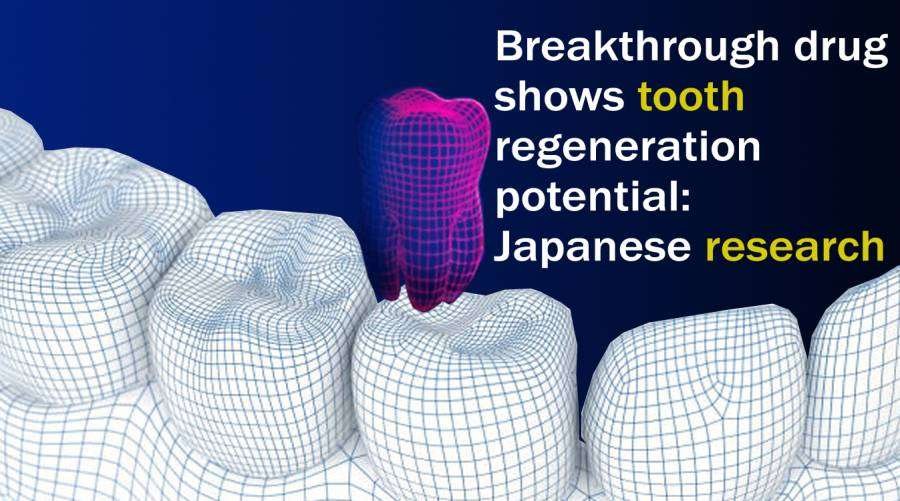A Bold Step Into the Future of Dentistry
Until now, losing a tooth has meant turning to dentures or implants — both artificial, costly, and sometimes uncomfortable. But that may soon change. A team of Japanese scientists is testing a drug that may allow people to naturally regrow their own teeth with a tooth regrowth drug.
In October 2024, researchers at Kyoto University Hospital launched the world’s first human clinical trial of a tooth regrowth drug. This could transform dental care by offering a third option — neither artificial nor surgical, but entirely biological.
How Does the Drug Work?
The drug targets a protein called USAG-1 (Uterine Sensitization-Associated Gene-1), which normally prevents tooth development. Some people have dormant tooth buds in their jaws — hidden structures that never activate but still exist.
By blocking USAG-1, the drug reawakens these buds, allowing new teeth to grow naturally, much like baby or adult teeth develop during childhood.
This method doesn’t involve surgery, implants, or prosthetics. It works with your body — using what’s already there.
What Did Animal Trials Show?
Before testing in humans, the drug was administered to mice, ferrets, and dogs. In each species, it led to successful new tooth growth, without notable side effects. In dogs — with jaws and chewing forces more similar to humans — the new teeth appeared structurally normal and functionally strong.
Source: Science Advances
These promising results were key to gaining ethical approval for human trials.

Details of the Human Trial (2024–2025)
The clinical trial at Kyoto University involves:
- 30 healthy male adults, aged 30–64
- Each participant is missing at least one back tooth
- The study is testing different doses of the drug to evaluate safety
- Monitoring includes X-rays, blood tests, and oral scans over several months
If no adverse effects occur, a second phase will involve children with congenital tooth agenesis — a condition where some adult teeth never develop at all.
Why This Drug Could Change Dentistry
If successful, this drug would offer a completely new way to treat tooth loss — one that:
- Avoids surgical implants and artificial materials
- Uses your body’s own tissues to regrow teeth
- Reduces future risk of bone loss often caused by missing teeth
- Improves oral function and aesthetics naturally
For patients who’ve struggled with ill-fitting dentures, implant failure, or bone grafting, this treatment could be revolutionary.

How Soon Could It Be Available?
If Phase 1 and 2 trials go well and no long-term complications arise, researchers hope to bring the drug to market by 2030. Widespread clinical use would likely begin in Japan first, followed by approvals in Europe, the UK, and the US.
Of course, it will take:
- Larger-scale trials
- Regulatory review by agencies like the MHRA (in the UK)
- Decisions around pricing and accessibility
But for now, the tooth regrowth drug represents the most scientifically credible attempt at regrowing human teeth ever made.
What Are the Limitations or Risks?
While the idea is exciting, a few things are worth noting:
- Not everyone has tooth buds capable of regeneration — some people may not respond
- If the drug works only for specific types of tooth loss (e.g. molars), it may be less useful for front tooth aesthetics
- Unknown long-term effects like root strength or integration need further study
- Early access may be limited by availability or cost
Nonetheless, the safety-focused design of the study and the targeted mechanism of the drug make it a low-risk and high-potential approach.
A Glimpse Into the Future
This development aligns with the wider trend toward regenerative medicine — where science doesn’t just treat symptoms but helps the body heal itself. Tooth regeneration could someday sit alongside stem cell therapies, organ regeneration, and advanced prosthetics.
In fact, researchers are already exploring whether multiple teeth can be grown this way — possibly even realigning how we understand orthodontics and oral development.
Want to Know What This Means for the Future of Dental Care?
This groundbreaking research from Japan could reshape how we treat tooth loss in the years ahead. While it’s still in trial stages, the implications for patients — especially those exploring alternatives to dentures or implants — are enormous.
– We’ve summarised the findings in this blog to help you understand the science and what’s coming next.
🔗 Explore the full research study here: Science Advances – USAG-1 Tooth Regrowth Trial